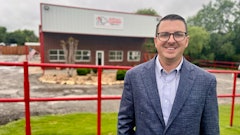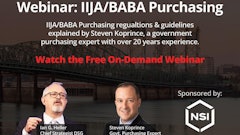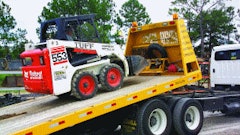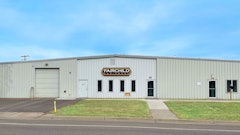Last issue we introduced you to "job cycle time," urging you to identify the steps each job requires and offering some insights into how you might approach determining cycle times for the work you do. In this issue we'll help you get a time study done so you can apply job cycle time to your business.
Completing a time study is not difficult. Using a stopwatch, record the beginning time you or your crew begins a particular step and the completion time. To provide you with some level of confidence about the cycle time of a process step, you should measure the same process step on several jobs and then take the average of the times recorded. Once you are confident that the average time for a particular step is secure, establish this time as your cycle time for the step or process that was timed.
One secret measuring effort I've used before is to measure the average time a paving crew can place eight tons, then 16 tons, then 32 tons etc. Having a breakdown of tonnage can then help you be more accurate, and faster, when putting estimates together. Similarly, you might measure your sealcoat crew on applying one coat per ten thousand square feet or other increments of square footage often completed.
When you are developing a cycle time standard for a process, be sure that the steps used to complete the process are the same. If you record the same process three different times, and the order of completing the process is different each time, you will potentially bias the average time arrived at. Such a miscalculation could prevent you from establishing a dependable time to base your customer bids and job scheduling on. In other words, compare lots that have no islands as an example against each other. Then, measure your crews on similar size lots with two to four islands. Bunch similar type jobs together so you are confident in the benchmarking of lots.
Cycle times can be established for any process within your business. Once you have established cycle times, make sure that you inform your employees. Cycle times should become the standard operating goals for completing jobs. Therefore, when processes take longer than expected to complete, compared to the established cycle time standard, questions should be raised as to the possible causes for the additional time. Remember, time is money…I mean speed is money!
Using cycle times as goals can be very motivational for your crews. In fact, as you seek to improve your company's performance, any changes in techniques or use of a newer tool or piece of equipment should be compared against the cycle time. Did any new technique or equipment help you perform your work faster? Did the shorter time frame also include maintaining or improve the level of quality in the job?
Cycle times can assist you to monitor whether your crews are following the proper work procedures, or are using the proper amount of materials, or whether the equipment used is operating properly. Tracking cycle times will strengthen your proof that your company procedures and values are being conformed to by your employees.
First measuring your firm's various cycle times and then tracking the cycle times for jobs will add to your understanding of your business. When cycle times are disproportionately higher or lower than your standards, you should begin to inquire as to the reason for such differences. While not every job will meet the exact cycle time established, you should expect that most jobs will be completed within an acceptable tolerance of the cycle time.
If you have never considered cycle times as necessary to running a better business or have traditionally "guesstimated" completion times, you have prevented yourself from bringing greater accuracy to you effort. Try taking a few processes that your crews perform and establishing cycle times. Then, monitor all future similar processes by recording your cycle time trends. Keep your crews informed about the trends and watch the level of perfection begin to improve!
Brad Humphrey, president of Pinnacle Development Group, will present a variety of new business and employee management seminars at National Pavement Expo West, Nov. 30-Dec. 2, Las Vegas, and National Pavement Expo, Jan. 31-Feb. 3, 2007, in Nashville. For information on those sessions visit www.nationalpavementexpo.com. For more information on establishing cycle times for your crews contact Brad by visiting www.pinnacledg.com.


























